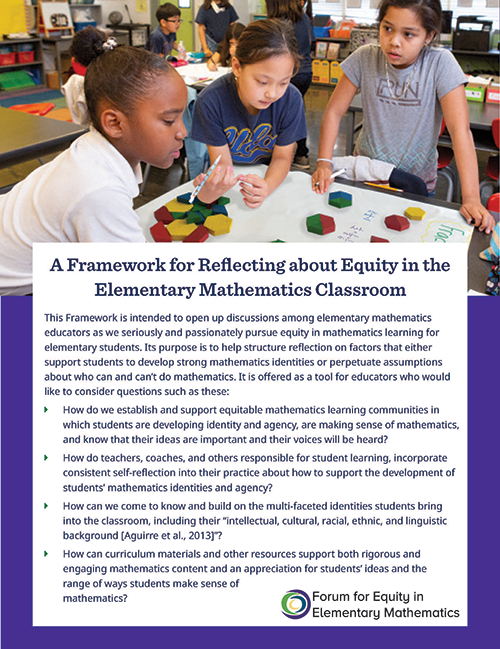A Framework for Reflecting about Equity in the Elementary Mathematics Classroom
“Mathematics teachers and leaders must take multiple actions to create and sustain institutional structures, policies, and practices that lead to just and equitable learning opportunities, experiences, and outcomes for children.”
A Framework for Reflecting about Equity in the Elementary Mathematics Classroom is offered as a tool for educators who want to engage in collaborative reflection on equity, identity, and agency in mathematics learning and teaching. Its purpose is to help structure discussions about factors that either support students to develop strong mathematics identities or perpetuate assumptions about who can and can’t do mathematics.
The Framework is organized around four areas that we believe are critical to consider when reflecting on equity in the elementary mathematics classroom.
1. Deep and Rigorous Mathematics
2. Equitable Participation in a Collaborative Mathematical Community
3. Strength-based Assessment and Accommodation
4. Connections to Students, Their Families, and Their Communities
The document describes each area, its importance to equity, and the roles teachers, students, and curriculum materials play in supporting equity. It also includes a set of questions to guide reflection and conversation about potential action. Examples are provided of how the Framework is being used by educators in various contexts to implement actions that promote more equitable teaching and learning in the mathematics classroom.

